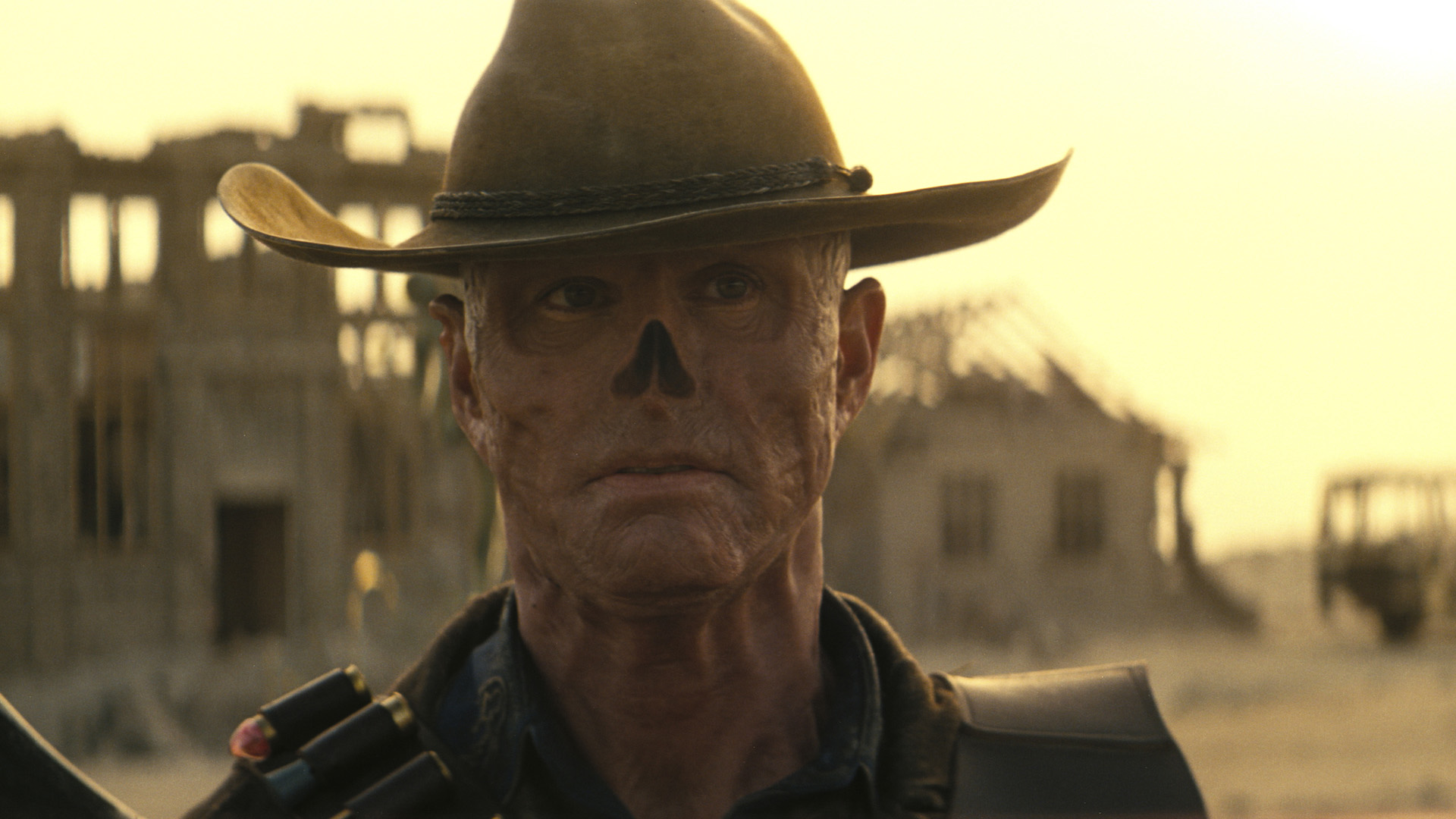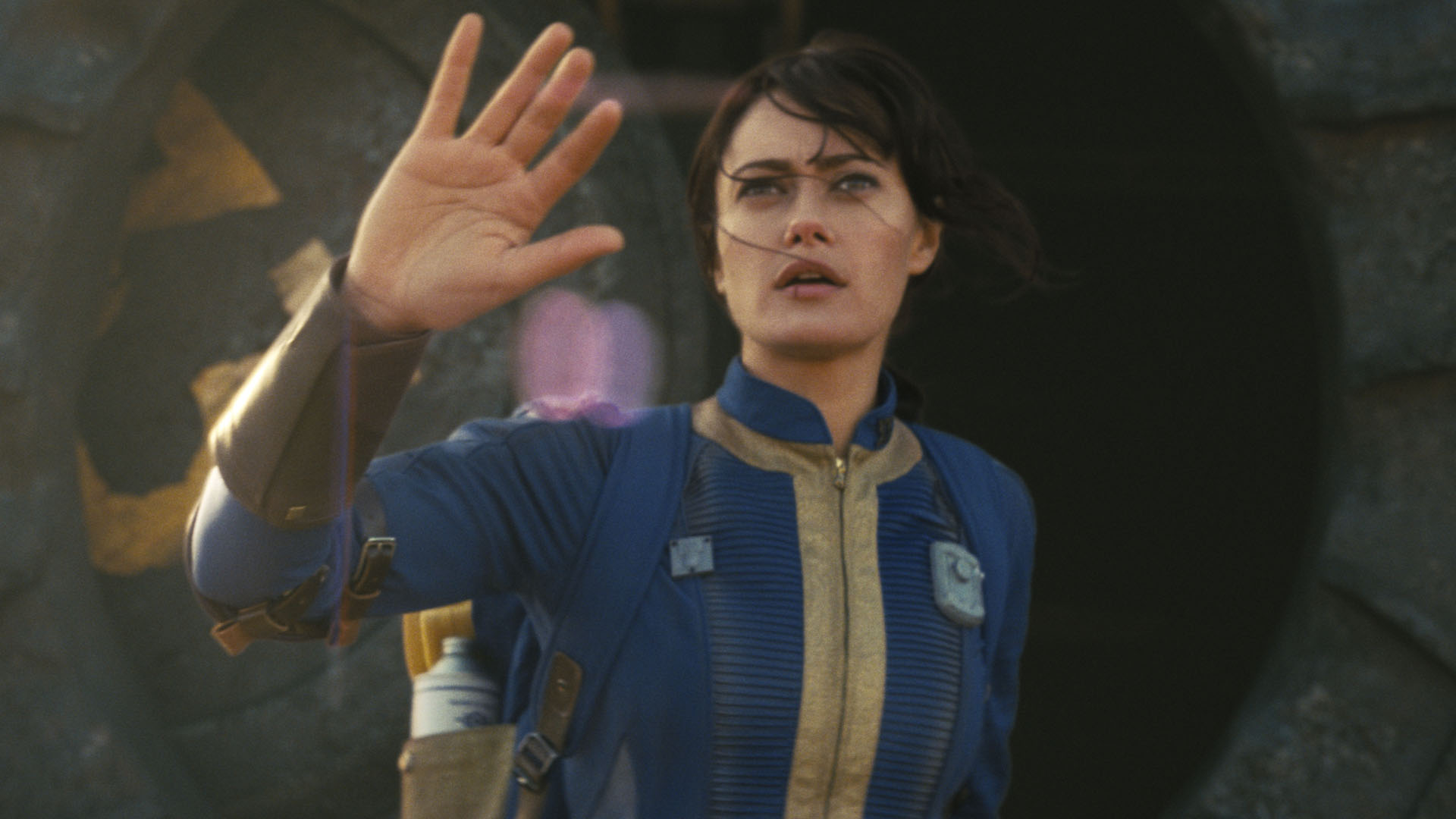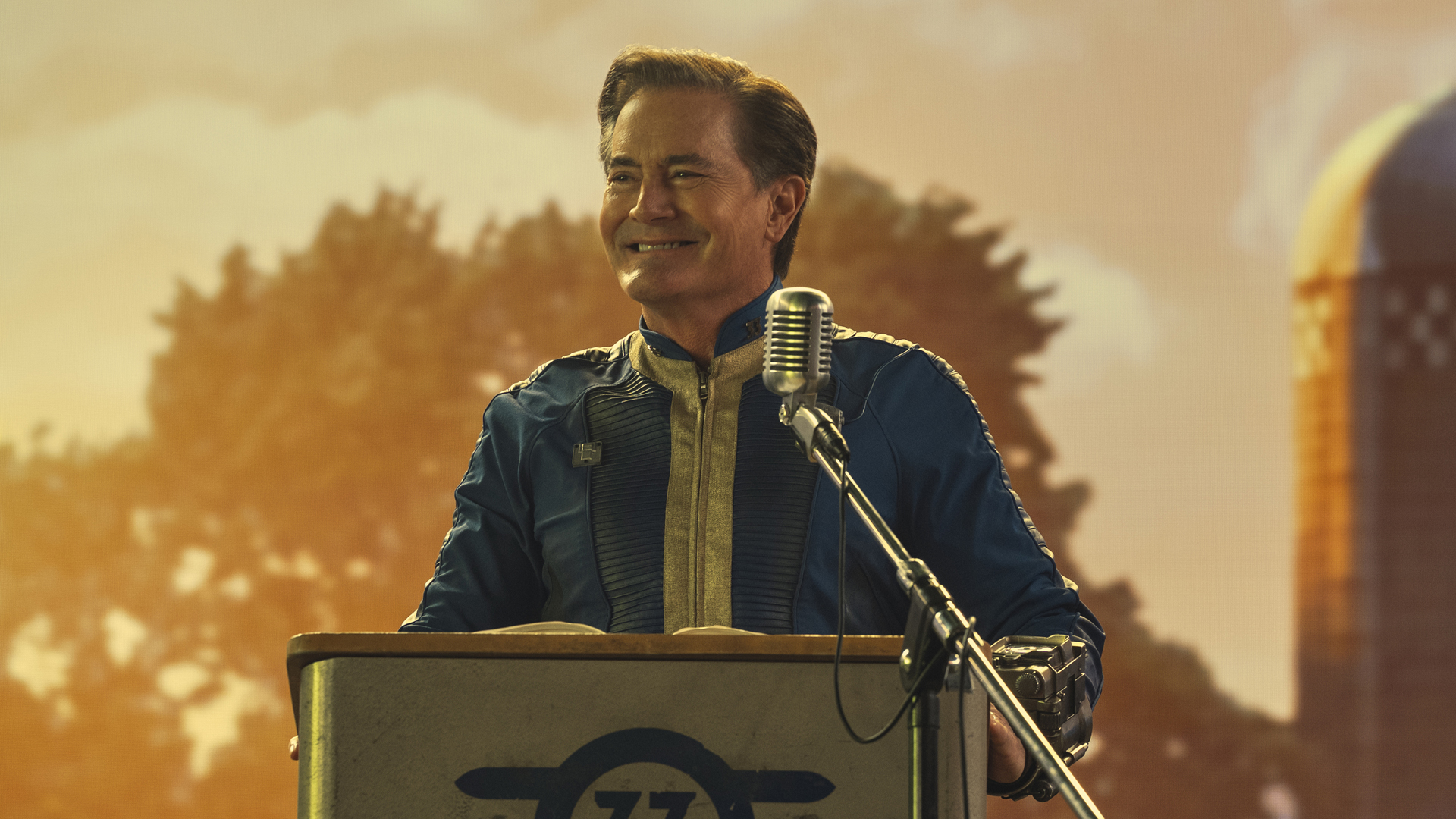Amazon's Fallout TV show includes 'the one thing we could never do', Bethesda boss Todd Howard says

Sign up for breaking news, reviews, opinion, top tech deals, and more.
You are now subscribed
Your newsletter sign-up was successful
Bethesda boss Todd Howard has opened up on the one big difference between the iconic Fallout videogame series and its Prime Video TV adaptation.
Speaking exclusively to TechRadar, Howard revealed that he was keen for Amazon's live-action take on Fallout to explore what the world was like prior to events depicted in the popular post-apocalyptic first-person shooter (FPS) games.
The franchise is set on a dystopian Earth, on an alternate timeline, hundreds of years after The Great War. The cataclysmic event, which occurred on October 23, 2077, sees the US and China engage in all-out thermonuclear war, resulting in the deaths of billions and the end of civilization as we know it. However, while each game in Bethesda's beloved series explores the, well, fallout from the in-universe Sino-American War, none of them have explicitly shown said events to players in the 27 years since the franchise began.

Howard, who has overseen development of each game since 2008's Fallout 3, believes Amazon's Fallout TV show is incredibly faithful to almost every aspect of the franchise that Bethesda created. He admits, though, that the decision to depict The Great War in the TV adaptation – a stunning but harrowing sequence that plays out in the first seven minutes of episode one – was a necessity to immerse audiences old and new in the story it tells.
"The big [change] was exploring the past," he told me. "In our [mine and creator Jonathan Nolan's] initial conversations, we knew we wanted to tell a new story that feels like a new chapter in the Fallout series, much like we do with the games, where each one has its own geography and story, but still has all of the hallmarks of previous titles.
"We both wanted to do that with the show, but the one thing we could never do in the games was [explore] the past. The way Jonah and everyone else has explored what the US was like, what's the threat of the atomic bomb and what will people do if a nuclear war happens, what's the Red Scare, who's Vault-Tec... they brought all this fabulous history and lore to Fallout. All these things then affect the present day characters in the show, so it was a treat for me and everyone at Bethesda who has worked on Fallout to think 'Oh, this is really fresh, but it's also quintessential Fallout'.
'It's horrifying... I was so surprised with the finished product'

Having seen Fallout's first four episodes – read my Fallout TV show op-ed now – I can say, without spoiling too much, that the show's examination of a pre-Great War Earth is flamboyant, elegantly retrofuturistic and fully lived-in. Through the eyes of big-screen star Cooper Howard (Walton Goggins), we get to see what life was like before the bombs fell, with flashback sequences interspersed through the show's primary present-day events.
Sign up for breaking news, reviews, opinion, top tech deals, and more.
It's the aforementioned beginnings of The Great War, though, that are – perhaps unsurprisingly – the most striking and moving aspect of hat exploration. Fallout's various trailers and clips have invited us to a hilariously grim party at the end of the world and shown us some funny Western stand-off-style action, but its opening salvo of inescapable horror is as chilling, albeit not as long as, an opening as viewers were treated to with The Last of Us' TV adaptation on Max. Indeed, as Goggins and fellow cast member Kyle McLachlan, who plays Vault-33 oversees Hank MacLean, told me, they were emotionally floored by seeing said scene for the first time.
"Watching the show's first seven minutes with an audience was illuminating but horrifying," Goggins revealed. "Any version of trauma, at any level, is tough to see, but I was so surprised by the finished product and seeing how emotional everyone, who I watched it with, was. I think that's when the show is at its best – it's funny, but there are real consequences for the people involved."
"The impact of those opening minutes is profound," McLachlan added. "Cooper is trying to save his daughter and make everything okay but, as an audience member, I also found myself thinking 'oh, we – society – have really let them [the generations to come] down'. This was in the powers that be's control and in their power to pre-empt, but they didn't. There are many themes in our show, but I think its examination of having responsibility, taking action, and living with your choices is one of the more powerful ones."
You might also like
- Fallout TV show creator hints at 'really cool' season 2 plans as rumors swirl over Prime Video series return
- 7 things Fallout TV show first-look images don't tell you about the Prime Video series
- Fallout TV show trailer opens the vault on Prime Video's apocalyptically authentic series
As TechRadar's senior entertainment reporter, Tom covers all of the latest movies, TV shows, and streaming service news that you need to know about. You'll regularly find him writing about the Marvel Cinematic Universe, Star Wars, Netflix, Prime Video, Disney Plus, and many other topics of interest.
An NCTJ-accredited journalist, Tom also writes reviews, analytical articles, opinion pieces, and interview-led features on the biggest franchises, actors, directors and other industry leaders. You may see his quotes pop up in the odd official Marvel Studios video, too, such as this Moon Knight TV spot.
Away from work, Tom can be found checking out the latest video games, immersing himself in his favorite sporting pastime of football, reading the many unread books on his shelf, staying fit at the gym, and petting every dog he comes across.
Got a scoop, interesting story, or an intriguing angle on the latest news in entertainment? Feel free to drop him a line.